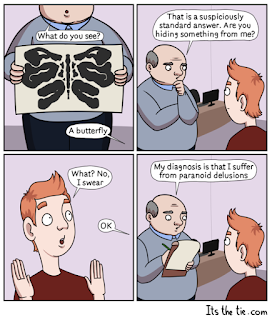What to do if you need to file an emergency motion during the Coronavirus epidemic
Disclaimer: The information provided on this website does not, and is not intended to, constitute legal advice; instead, all information, content, and materials available on this site are for general informational purposes only. Readers of this website should contact their attorney to obtain advice with respect to any particular legal matter. No reader, user, or browser of this site should act or refrain from acting on the basis of information on this site without first seeking legal advice from counsel in the relevant jurisdiction. All liability with respect to actions taken or not taken based on the contents of this site are hereby expressly disclaimed. The content on this posting is provided "as is;" no representations are made that the content is error-free.
The Coronavirus epidemic has seized the country. Courts are closed, or extremely limited in operation. Your lawyer may be sick or is unreachable, or you may not have a lawyer. You have an emergency that cannot wait, and you need to file an emergency motion NOW. You also know for certain that serving the other party or having them show up to court will be nearly impossible due to the restrictions placed on the public to curb the spread of Coronavirus. If you find yourself in this situation, you may be able to file an ex parte motion.
What is an ex parte motion?
An ex parte motion is a motion that is filed in a situation where getting an immediate order is urgent, and you can petition the court without notifying and serving the other party. What happens during this process varies in each state. In most cases, there is no notice or any opportunity to be heard by the other party during the first court appearance. If the judge grants the ex parte order, the order is only temporary. A full hearing will be conducted as soon as possible.
Where do I file my ex parte motion?
First, you must confirm jurisdiction. Jurisdiction is the court or venue where your motion can be heard. If you are still in the process of filing or you are in the middle of a trial, the jurisdiction remains the same as where it's been until now. If you do not have a final judgement of divorce, your custody agreement may determine jurisdiction. If you do have a final judgement of divorce, look for the paragraph closer to the bottom that addresses jurisdiction. If your judgement of divorce states that one venue has exclusive jurisdiction, you have to file a motion in that venue. If it states that one court or venue has jurisdiction concurrently with another court or venue, you are free to file your motion in either one.
How do I file an ex parte motion?
To file an ex parte order, you must have an application or motion ready, along with supporting evidence and an affidavit. The stronger your affidavit and supporting documents are, the more likely it is that your ex parte order will be granted.
If you do not know how to write a motion, have the following pieces of information handy, and a court clerk will be able to assist you:
A copy of your parenting agreement, custody agreement, or the most current signed motion you possess.
Docket number - Found on the top right hand of any previous motion. This usually has a few numbers and a year (ie 12345-2019).
Legal Name, and address of the other party, as well as the children.
A short and clearly written paragraph explaining the issue. Try to stick to facts and minimize feelings.
In most states, you will be able to present your ex parte motion to the judge the same day you file it in court. The clerk will ask you to wait around until the judge can either review your motion or until the judge wants to speak with you. In California and Illinois, you must give notice to the other party the day before the emergency hearing, or you may risk having the request denied. You may circumvent the requirement of notice if you can prove there is serious risk if the ex parte order is not granted. To determine your states ex parte rules, visit the state court's website. This can be done by doing a Google search for "[your state]+state+court+rules".
What happens next?
The judge can either grant the ex parte motion and issue a temporary order, or deny it. If a judge grants an ex parte motion, it is only temporary because the other side was not present. The court has to hold a full hearing with both parties present in order to ensure that both parties receive due process. You will be told when this is going to occur. For this hearing, the other party will have to be properly served. Even if a judge denies your ex parte motion, there may still be a hearing later on that you will both have to attend. At the hearing, the other party will have a chance to present their argument, and the judge will make a final decision.


Comments
Post a Comment